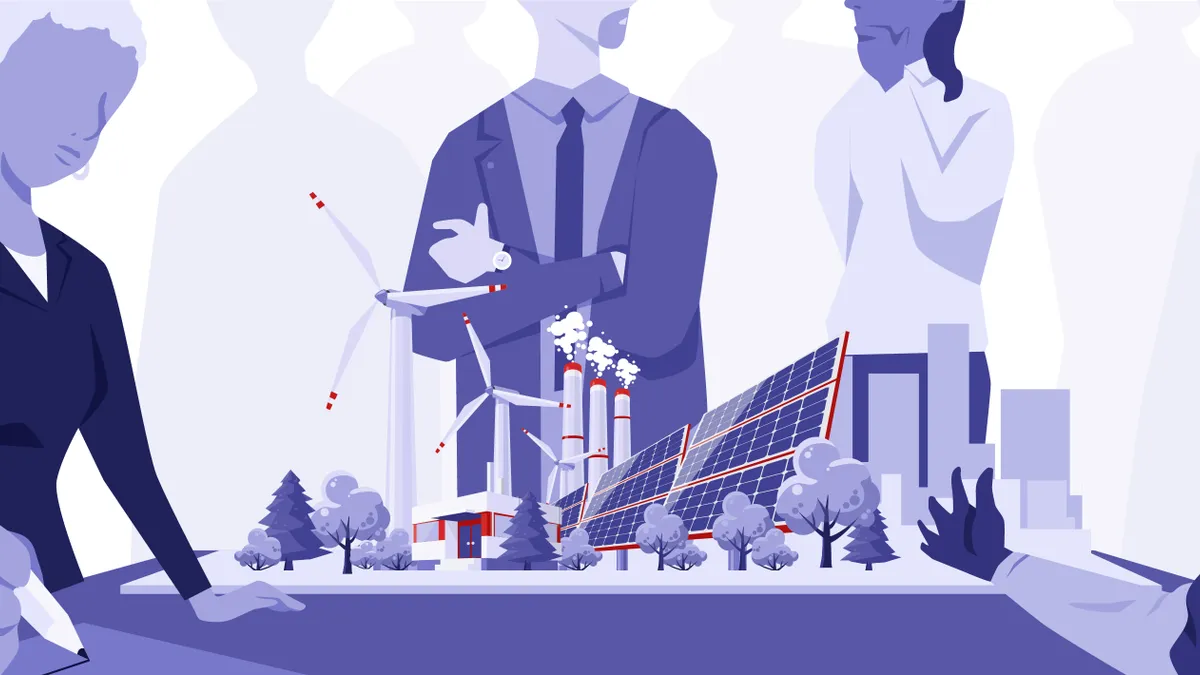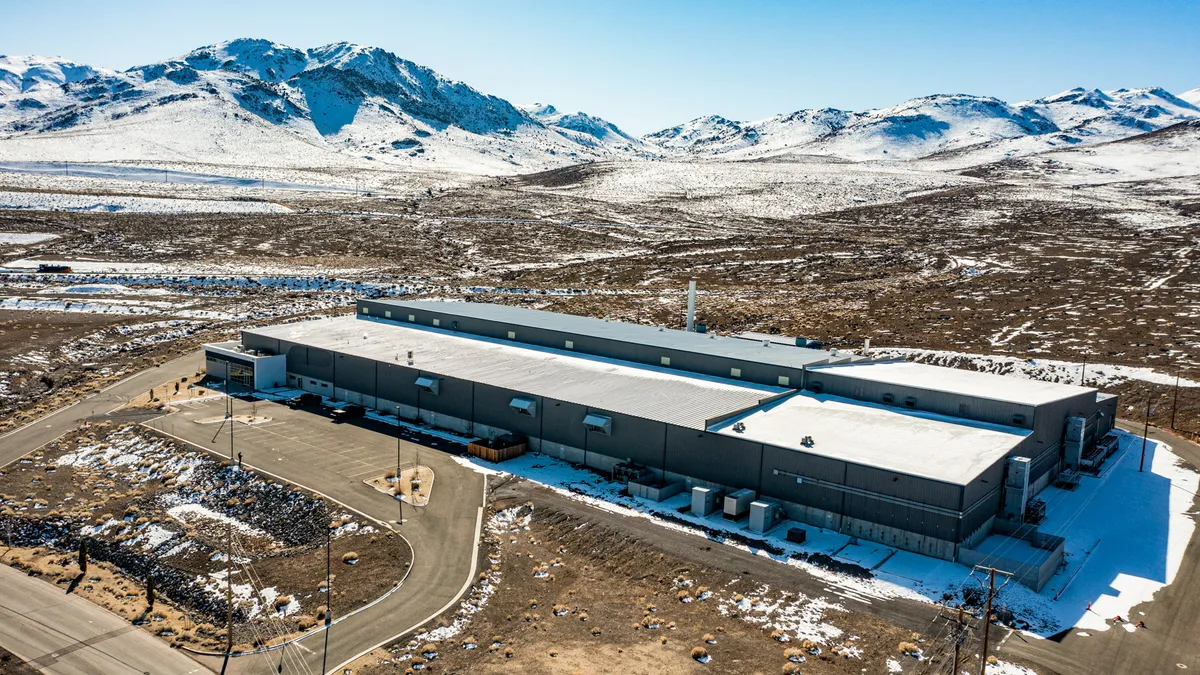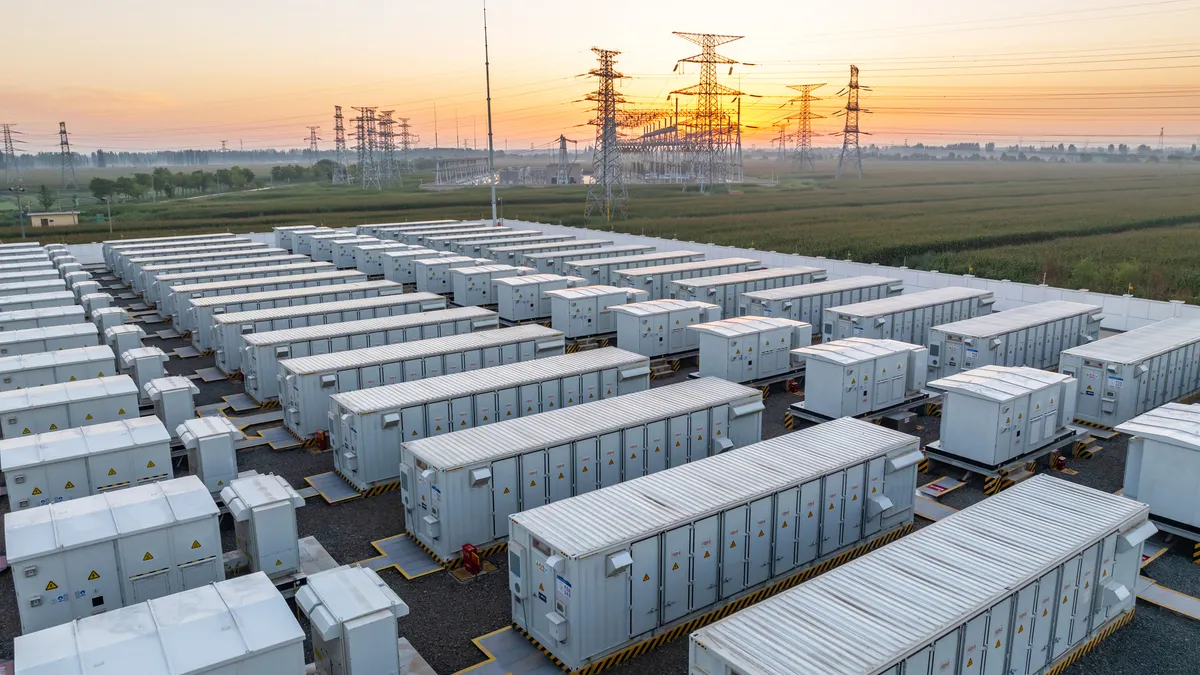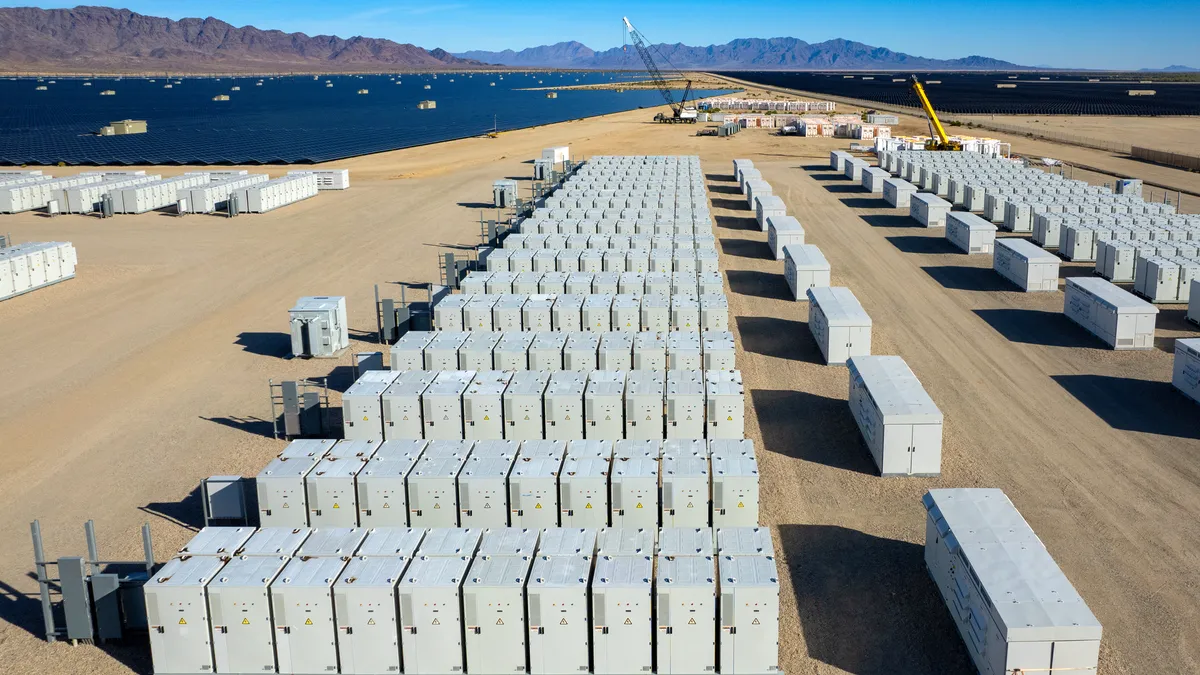This is the latest installment in Utility Dive's "Taking Charge" series, where we engage with power sector leaders on the energy transition.
As the Biden administration pushes massive investments in clean energy as part of a goal to reach net zero emissions by 2050, the White House wants the technology behind that energy to be homegrown.
That's a challenge that Lindsay Gorrill, CEO of Kore Power, is ready to tackle. Kore, which was founded in 2019, announced plans to build a battery cell factory in Buckeye, Ariz., 40 miles west of Phoenix, earlier this year. The company projects the factory will produce 12 GWh of total annual capacity by the end of 2023 and anchor what Gorrill hopes will become a grand-scale battery ecosystem in the Grand Canyon State.
"If you want a green economy, you have to have the supply nearby. The last few years have proven that," Gorrill told Utility Dive in an interview. "If you don't have supply chain control, you might miss out on the opportunity to grow the clean economy."
The KOREPlex facility — which at its full size will cover 1 million square feet — will be the only domestic battery gigafactory owned and operated entirely by a U.S.-based company, Gorrill said. Kore's lithium battery cells can be modified to work in electric cars, micromobility vehicles, like e-bikes, and large-scale operations like utility storage and electric vehicle (EV) chargers. The flagship NMC cell (indicating its nickel-manganese-cobalt chemistry) has a 55 amp hour capacity and a nominal voltage of 3.7 volts.
The goal is to bring those cells to local integrators and manufacturers, creating a battery hub in the Phoenix area.
"Right now, someone building in the U.S. might have to wait six months to get a battery cell from Korea or Japan or China," Gorrill said. "Now if you're located in Buckeye [County], you could have it the very next day."
The company also announced in September that Randy Cowder, who was general manager of manufacturing at Panasonic's gigafactory in Nevada, would join Kore to run operations at the KOREPlex.
A domestic supply chain
The lithium battery market is expected to grow by a factor of up to 10 in the next decade, but most of that production remains in Asia. According to BloombergNEF's 2021 global lithium-ion battery supply chain ranking, China currently hosts 80% of all battery cell manufacturing capacity, with the potential to more than double by 2026. The U.S., however, moved into second place in the rankings for production in 2021 and a projection to 2026, thanks to investments from Tesla and Asian countries looking to establish a U.S. base.
According to a March report from Benchmark Mineral Intelligence, China is the most aggressive country in gigafactory construction, with 148 of the world's 200 megafactories in the pipeline in China, compared to just 21 for Europe and 11 for North America. Of the 93 existing gigafactories identified by the consulting firm in a separate report, only four were in the U.S. And even those factories are either controlled or partnered with Asian companies; Tesla's gigafactory in Nevada, for example, is part of a partnership with Panasonic, although the automaker and energy giant is opening a battery and vehicle factory in Texas.
Sam Jaffe, vice president of battery solutions for the utility solutions firm E Source, said a supply chain where semiconductors and battery cells come from overseas "opens the country up to national security and supply chain issues." Disruptions to overseas shipping, like those that have plagued the microchip industry for the last year, could slow down deployment of batteries, to say nothing of a trade war with China that could raise import costs.
"Having a domestic supply chain makes clean energy more secure, but another important point is that a domestic supply chain makes clean energy cheaper," Jaffe said. "In the long run, you're saving money by manufacturing where you're going to put these batteries or solar panels. In many ways, the most important element of creating a domestic supply chain is that it lowers costs for the entire market."
In June, the Department of Energy released a blueprint to establish a "secure battery materials and technology supply chain" in the U.S. by 2030, with goals to secure access to materials and stimulate the electrode, cell and pack manufacturing centers.
Specifically, the blueprint aims to reduce the cost of EV pack manufacturing by 50% by the end of the decade by incentivizing advanced manufacturing and assembly. The department also announced the availability of loans to vehicle battery cell manufacturers for the first time.
Arizona's Big Boom
The manufacturing chain isn't just about volume; in the energy storage industry, many suppliers prefer to only buy from well-known, Tier 1 brands rather than trusting a less established product. That's in part why Gorrill wants to build an end-to-end ecosystem in Arizona, where companies can build long-lasting relationships and, eventually, attract more players.
Chris Camacho, president and CEO of the Greater Phoenix Economic Council, said the state's history in defense contracting and microchip manufacturing made it an ideal fit for that kind of advanced energy ecosystem.
"Becoming a hub where people test clean energy and renewable strategies is pretty much in our DNA," Camacho said. "There's no question that Lindsay's and Kore's plans will have a very significant impact not just on direct jobs and investment decisions, but the entire energy and automotive supply chain. Success begets success when you get to this level."
Kore assessed some 300 sites in choosing its factory site and narrowed it down to sites in Arizona, Florida and Texas. Gorrill said that Arizona "checked all the boxes," including support from local universities and the state and local government. The Arizona Republic reported that Kore could see a $63 million tax cut through the state's Qualified Facility Tax Credit program among other grants. In a statement in July, Arizona Gov. Doug Ducey, R, said the factory will "position Arizona as an anchor in the global battery manufacturing supply chain."
Gorrill also said there was great value in being close to the company's potential customers. In September, Kore announced a partnership with electric powertrain firm ZEV, which has a production facility in nearby Gilbert, to work on EV technology. EV manufacturer ElectraMeccanica will also open a factory in Mesa, Ariz., and battery recycling firm Li-Cycle, in April, announced plans to build its third facility in Arizona.
"I think of this as the big tech boom in San Francisco," Gorrill said. "What you find in the Phoenix area is a lot of excitement around clean energy and a focus on building those markets and businesses to create demand. Everything is moving in the right direction."






















